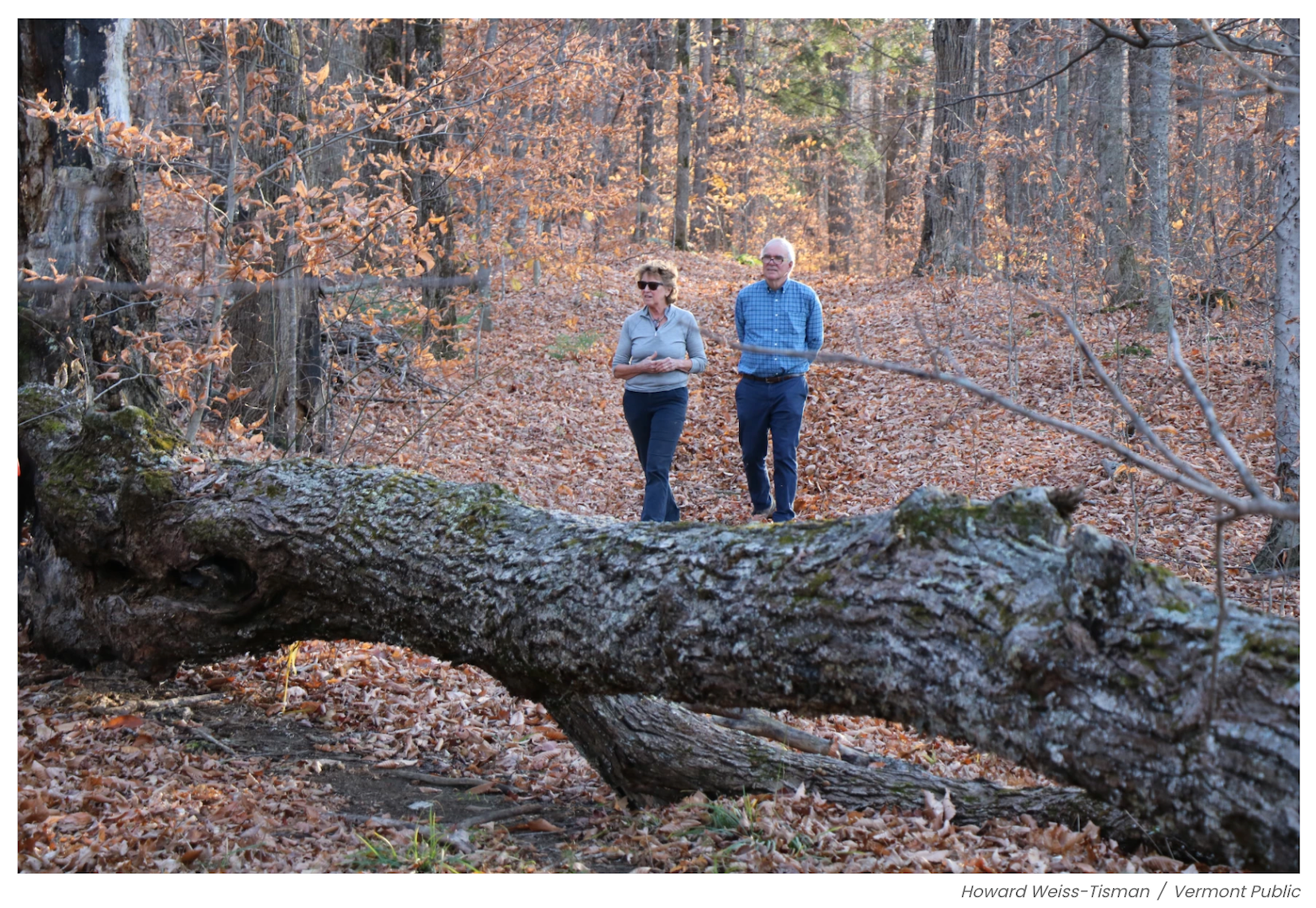
Dispute over Legal Town Trail in Tunbridge, VT (Vermont Public coverage and more)
And continue on to read our blog post and thoughts on the topic below.
________________________________________________________________________
The Ongoing Debate Over Legal Town Trails and Class IV Roads in Vermont: A Growing Concern
Discussions surrounding legal town trails and Class IV roads in Vermont are not new, but they tend to resurface periodically—often sparked by a conflict between landowners and the public. These disputes usually arise when a landowner believes that trail users are trespassing or when someone walking or driving on a public right-of-way is confronted with threats of legal action from adjoining property owners.
While Vermont law is generally clear on these matters, and public access rights are well-established, there are situations where these rights are challenged or even undermined. In some cases, individuals like attorney John Echeverria have gone so far as to pressure small towns into relinquishing their public rights, often using legal tactics to drain town resources until they surrender.
Underhill, VT: Legal Trail & Class IV Road Dispute
A notable example of such a conflict is playing out in Underhill, VT, where a landowner has filed a lawsuit against both the town and several non-profit organizations over a legal trail and an adjoining Class IV road. This road, which is designated for public use, has become a point of contention, with the landowner using aggressive signage and other tactics to discourage public access. These signs, which claim trespassing, have created confusion for both locals and passersby, as the road is a public, legally recognized route. The situation has raised questions about the rights of landowners versus the rights of the public to access these defined roads and trails.
Below is an example of the "No Trespassing" signs that have been plastered all along the legally passable road. We've blurred out the landowner details for privacy, but if you want to dig in you can see them on several posted signs along New Road in Underhill.

Fletcher, VT: The Webb Road Case
In Fletcher, VT, another conflict has arisen over Webb Road, a Class IV road that has been confirmed by both town road maps and the town selectboard as a public passage. Despite this, the landowner has repeatedly harassed travelers on the road, threatening them with trespassing. Even though the road is legally open to the public, the landowner’s aggressive actions have caused confusion and tension, leading many to question how much public access is truly protected in rural areas.
Cambridge, VT: Erosion of Public Rights on County Farm Road
In Cambridge, a similar story unfolded with County Farm Road, which was once recognized as a public right-of-way. However, after years of pressure from a landowner who repeatedly challenged the town’s stance, the town eventually ceded control over the road, giving up its public access rights. This case serves as a sobering example of how persistent legal and social pressure can result in the erosion of public access, even when the law is clear.
A Growing Threat to Public Access
These examples—whether in Underhill, Fletcher, or Cambridge—are part of a worrying trend that signals a gradual loss of public access to Vermont’s legal trails and Class IV roads. In each case, the rights of the public to use these roads and trails are being chipped away by landowners using a combination of legal threats, aggressive signage, and other tactics to deter public use. When small towns buckle under the pressure and decide it’s easier to settle than to defend their rights, public access is the first casualty.
This trend poses a real risk to the future of Vermont’s rural infrastructure and the public’s right to explore the state’s natural beauty. The challenge lies in balancing the rights of landowners with the public’s right to access, and ensuring that Vermont’s legal town trails and Class IV roads remain open and usable for generations to come.
As these disputes continue to unfold, it’s crucial for the public to be aware of these issues and advocate for the preservation of Vermont’s public access routes. The loss of public roads and trails, no matter how small the dispute may seem, is a dangerous path that threatens the very fabric of rural life in Vermont. The importance of maintaining these rights cannot be overstated—because once access is lost, it’s nearly impossible to regain.
Being Good Stewards of Public Lands
Public land users in Vermont are encouraged to practice good etiquette to ensure that everyone can enjoy the outdoors responsibly and respectfully. This includes staying on marked paths to avoid trespassing on private property, yielding the trail to others—especially those on horseback or uphill hikers—and keeping noise to a minimum to respect the natural environment. Users should also pack out all trash, leaving no trace of their visit to help preserve the beauty of Vermont’s public lands for future generations. It’s important to be mindful of wildlife and avoid disturbing animals or their habitats, as well as respecting seasonal trail closures or other regulations. By following these guidelines, public land users can help maintain public access and foster a positive relationship between outdoor enthusiasts and the communities that welcome them.
